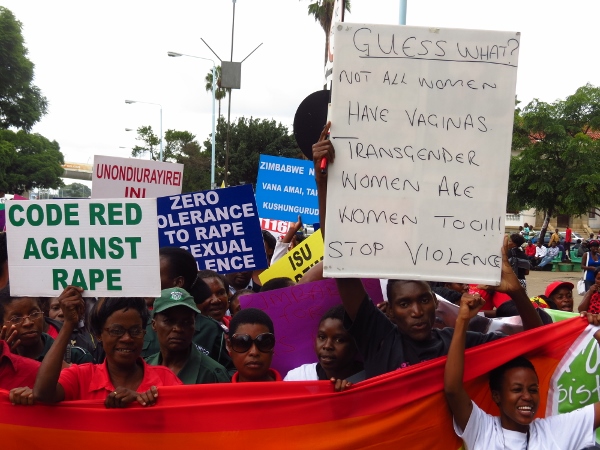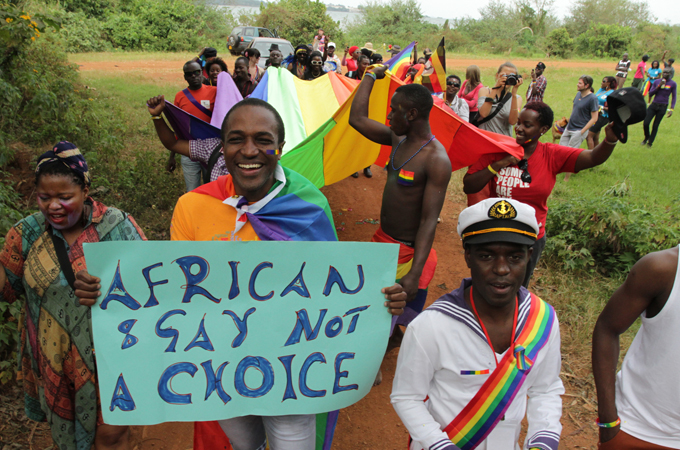“I am officially legal,” gay activist Frank Mugisha tweeted shortly after Uganda’s Constitutional Court made a ground-breaking decision to overrule the country’s notorious anti-gay bill on August 1st. Uganda’s lesbian, gay, bisexual, transgender and intersex (LGBTI) community and human rights activists the world over applauded the ruling. However, despite excitement within Uganda and across Africa, the law’s nullification does not shield “LGBTI people from ongoing discrimination, arrest, and prosecution…. In fact, penalties for same-sex conduct remain very much enshrined in Uganda’s existing penal code.” To protect this critical gain and ensure the law is not revived, activists must mobilise nationally and regionally to make their voices heard and to advocate for real safety and security measures for all LGBTI people.
The potential for backlash in Uganda comes at a time when LGBTI communities across the African continent are increasingly at risk of violence and even death. According to the Human Rights Campaign, Uganda is just one of 37 countries in Africa that currently criminalizes same-sex relationships, four countries allow for the death penalty against LGBT people, two countries have laws against LGBTI “propaganda” while only one country, South Africa, grants full marriage equality and constitutional discrimination protection to its LGBT citizens.
“It’s not just about the law,” says Katswe Sistahood’s, Winnet Shamuyarira. “It’s about attitudes and much more. I celebrate that the Ugandan court ruled against the bill but I think there is more work for the LGBTI movement in Uganda and across the African region to build a political consciousness that shifts people’s way of thinking. Having laws does not prevent discrimination—we can give the example of South Africa which is the only country in Africa that has LGBTI-friendly laws including marriage equality, but this has not stopped violence against the LGBTI community, specifically black lesbian, bisexual, transgender and intersex women.”
In the wake of the brutal rape and murder of Gift Makau, a black lesbian living in South Africa, queer activist, Sheena Magenya of the Coalition of African Lesbians (CAL) asks, “What are we going to do? What conversations are we going to have? Much as I’d like to call for … leadership to act swiftly, and work harder in guaranteeing safety for black women, all over South Africa, I know, and we know that at best what we will get [are]… empty words of empathy that seek to soothe the symptom and not the cause.”
To move beyond “lip service“, LGBTI activism must hit at the heart of the matter by tackling the way people think about sex, sexuality and specifically women’s bodies in order to shift attitudes about the basic human rights of all people.
Regionally, JASS Southern Africa’s LBTI agenda aims to support the very conversations Magenya speaks of, particularly in Zimbabwe. JASS’ partner, Katswe Sistahood uses radical women’s spaces to confront prejudice and discrimination against LBTI women through community gatherings they call “pachotos.” Katswe Sistahood’s work in Zimbabwe’s high density urban communities gathers some of the most marginalised—young women, sex workers and LBTI people—to confront silence and stigma around sex and sexuality. Together with CAL, Katswe is taking this work to a regional level, using pachotos in urban and rural communities in seven countries across Southern and Eastern Africa. These gatherings will not only bring women together to have critical conversations but create a much-needed network of women activists to mobilise against violence and strategize for safety and security with the strength of numbers.
Image credit: Aljazeera.


























